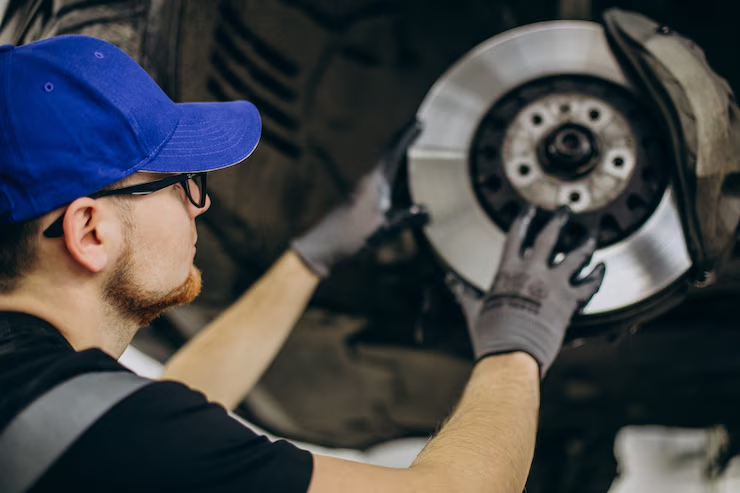Feeling a pulsing or vibrating sensation when you apply the brakes isn’t just a minor nuisance—it often points to potential problems within your braking system.
What is the brake pulsation
Brake pulsation refers to a shaking or vibrating sensation you feel through the brake pedal (and sometimes the steering wheel) when applying the brakes. This usually happens because one or more brake components, typically the brake rotors, have become uneven or warped. When the brake pads press against these uneven surfaces, the friction isn’t consistent, causing a pulsing or wobbling effect. Other causes can include uneven brake pad wear, loose suspension parts, or issues with wheel alignment. While it might start as a mild annoyance, brake pulsation can worsen over time and affect braking performance, so it’s important to have it inspected and corrected promptly.
Brake Pad Wear and Tear
Front brake rotors are a critical part of your vehicle’s braking system, handling much of the braking load—particularly in larger vehicles like SUVs and trucks. Due to the constant pressure they endure, front rotors are more susceptible to issues like warping, which can lead to pulsation during braking. This often shows up as vibrations in the brake pedal or wobbling in the steering wheel, especially when slowing down from highway speeds. While rear rotors also support overall braking performance, it’s usually the front rotors that bear the brunt of wear and are more likely to cause noticeable symptoms when problems arise.
Impact on Car Breaking with a Foggy Windscreen?
Brake pulsation affects more than just your vehicle’s braking—it also impacts overall handling and driver control. When brake pads grip unevenly onto warped rotors, it creates a shaking sensation in the steering wheel, making it harder to maintain control. Distorted front brake discs can transmit vibrations throughout the steering system, especially during sudden or hard braking, compromising vehicle stability. Experiencing brake pulsation can significantly reduce driving comfort and safety, so identifying and fixing the underlying causes is essential for a smooth and secure ride.





